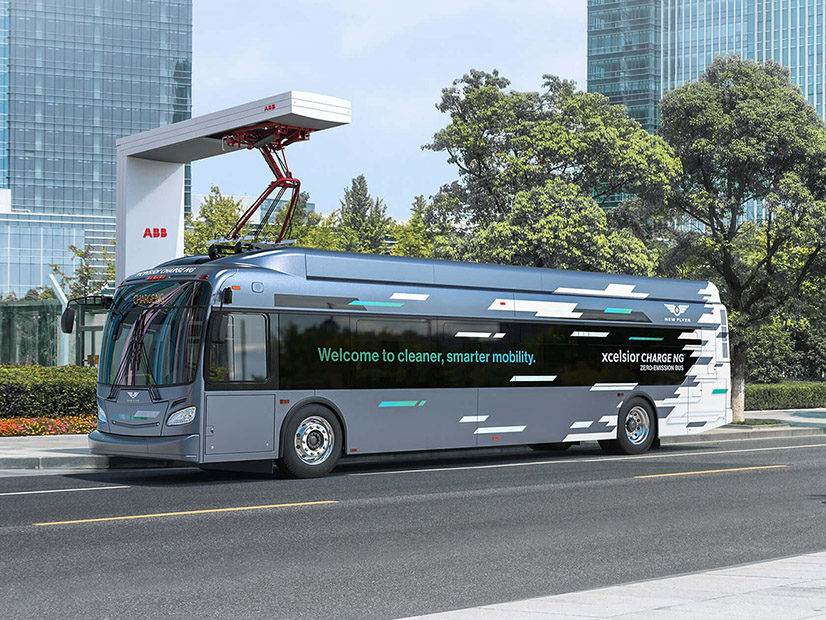
Legislators and environmental advocates spoke Thursday on behalf of a bill that would speed up a Massachusetts Bay Transportation Authority plan to electrify its bus fleet by 2040.
The bill (S2292) would set a new full-fleet electrification target for 2030 — with interim targets — and direct MBTA to purchase only electric vehicles starting next year.
Gov. Charlie Baker’s decision to back away from the Transportation and Climate Initiative and new obstacles to building the New England Clean Energy Connect project are “serious blows” to the state’s ability to meet its climate goals, Sen. Brendan Crighton, co-sponsor of the bill, said during a Joint Transportation Committee hearing.
The bill on public transit electrification, he said, would put the state “back on track.”
Under the proposed legislation, MBTA would have to ensure all garages for the authority’s 1,100 buses be ready to support an all-electric fleet by 2029. The Massachusetts Department of Transportation, which oversees the MBTA, already has a plan in place for transitioning state transit buses and facilities through 2040, setting new and modernized facility openings every two years along with bus purchases to match facility capacities.
To meet the faster timeline in the bill, MBTA would have to “think creatively,” Rep. Steven Owens (D), who co-sponsored a House companion bill (H3559), said in hearing testimony. The authority could look at “currently underutilized” facilities as “swing space” while new construction is underway, he said.
An estimated $4.5 billion is needed to complete the necessary facility upgrades, according to MBTA, and the authority has yet to identify full funding for its first two modernization projects. There are opportunities for federal funding to fulfill some of the needed funding, Owens said.
Massachusetts will receive $2.8 billion over five years from the Infrastructure Investment and Jobs Act to improve the state’s public transportation, according to testimony from Pete Wilson, senior adviser for the Transportation for Massachusetts advocacy coalition. In addition, the Federal Transit Administration has $7.6 billion in competitive fleet electrification grant opportunities.
The FTA grant program “provides funding to replace, rehabilitate and purchase buses and related equipment and to construct bus-related facilities, including new facilities and rehabbing old facilities to accommodate low-emission or no-emission vehicles,” Wilson said.
A goal for the 15 regional transit authorities in Massachusetts to transition their bus fleets to electricity by 2035 is included in the bill.
Rail Transition
The bill sets a timeline for MBTA to move its commuter rail service, which is under contract to Keolis America, to electricity by 2035. A mandated two-phase approach for upgrading rail service would include switching five lines by 2027.
In 2019, MBTA’s Fiscal and Management Control Board adopted a plan to transform the rail system to what it called a “largely electrified, decarbonized” system in its 2020 annual report.
The authority’s existing rail fleet has 101 diesel-powered locomotives, the board said in a June 2021 productivity report. While the board has not set a specific timeline for upgrading the fleet and associated facilities, it started work last year on locomotive procurements for one of MBTA’s rail lines.
As part of its review of options for transitioning the fleet, the board identified a combination of battery-electric and overhead electricity technologies as “the best value approach,” the report said. The board estimated that a full, systemwide rail transformation would cost $28.9 billion.
